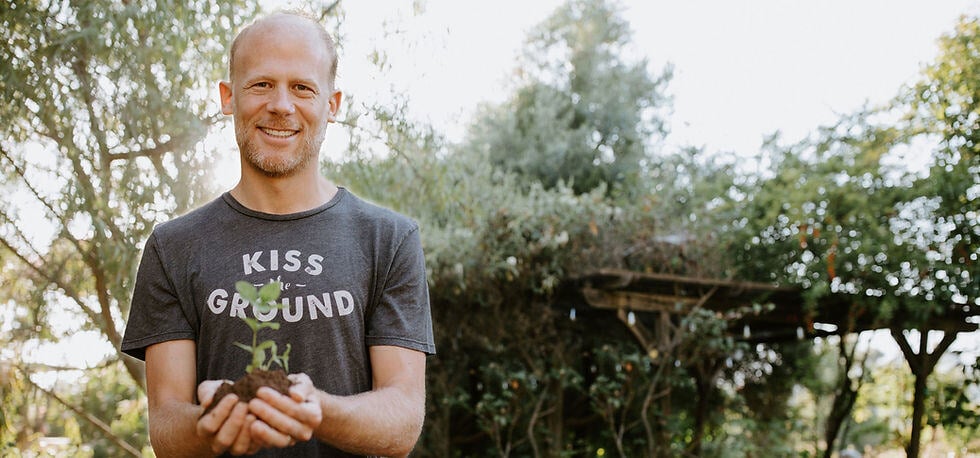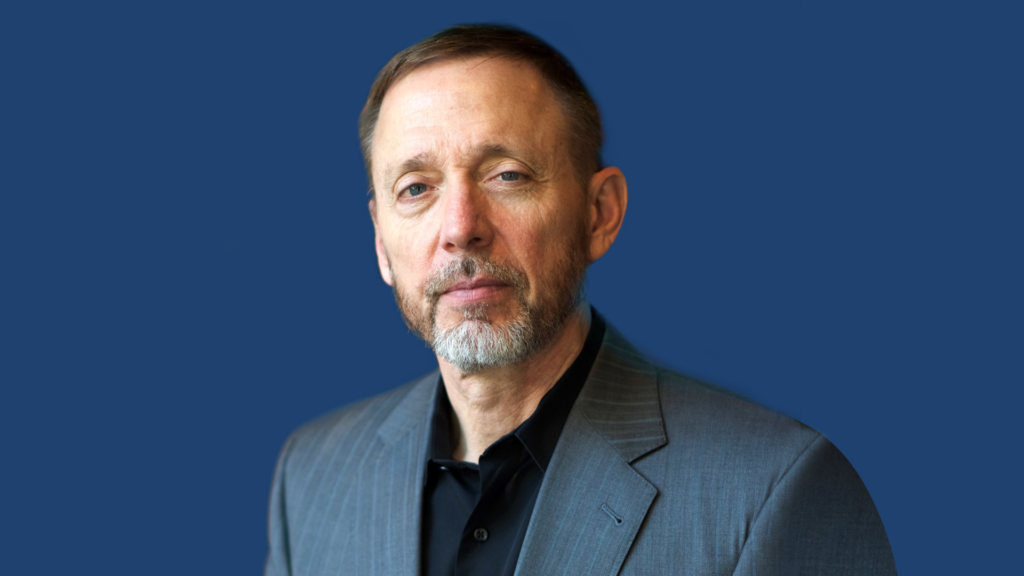
Josh Tickell recalls the birth of his activism.
“I grew up in Louisiana’s ‘Cancer Alley’ where the air is so toxic, it burns your lungs and eyes.”
“There are 150 petrochemical facilities in a hundred mile stretch of highway between Baton Rouge and Houston. They make 50% of the nation's gasoline, and I watched people get sick and die around me from unnecessary pollution.”
Standing on corners, holding a protest sign, his hair and beard long, he began to ask himself, what’s going to change these giant industries?
“Will it change anything, me getting arrested? Or can we go inside the beast? Figure out what makes it tick, retool it, rebuild it, and have it work better?”
That’s when Tickell became a documentary filmmaker, and the change he has wrought since then has been monumental.
“I've been making environmental films for 20 years. Fuel, Pump. The Big Fix. Kiss The Ground. People would get close to taking the message on, but Kiss the Ground came out mid-pandemic and when it did, it struck a nerve.”
The film’s popularity took off.
“If you look at Google searches on regenerative agriculture before Kiss the Ground and after Kiss the Ground, it's a hockey stick. We married soil and carbon and showed how you can stabilize the climate. We got a lot of flak for that. The scientific community was up in arms, but eventually we were proven out.”
Watch Josh Tickell at METAL
Since then, regenerative agriculture has received an infusion of many billions of dollars, with Pepsi to General Mills jumping in.
“If you're talking to somebody in a cafe, and they said, ‘Listen, I can fix climate change’ you’d think this person is clearly insane. But if you talk to 150 scientists, which is what we had on the first film and they collectively crunch the numbers and data and they go, ‘we can stabilize the climate permanently and make an extra trillion dollars for the global economy,’ that's kind of a big deal.”

BUILDING A MOVEMENT
“What happened was unprecedented. We went from 250,000 acres of regenerative agriculture in the United States to 34 million acres – under transition contracted into regenerative agriculture – within three years. It took 50 years for the organic movement to put five million acres into organic!”
Tickell is getting people – and corporations – looking at the way to change how we grow food, which, he says, is the largest way human beings impact the planet.
“If you want to change where the carbon is, there are only three places: the atmosphere, the oceans, or the land. The most scalable, simple, cheapest technology we have is soil, which can fix it into what's called the recalcitrant layers – deep layers – where it will stay there for thousands of years. It's the simplest, no-brainer solution.”
With Kiss The Ground, Tickell created a goal: what if we could get 10% of US agriculture involved?
“What if we got major Fortune 500 companies and showed them that they could make more profit? This is a long play. Makers Mark just signed on. A farmer can sign an individual. If you have a cafeteria and you're a tech company, you can sign on to the pledge right? We’re moving pretty quickly.”

GREED, IF NOT GOOD, CAN BE USEFUL
Tickell is next going to Zurich to talk to Nestlé, which wants to be the first major brand to sign on to his soon-to-be-announced global One Billion Acre Initiative.
“To shift the global market, to stabilize the climate, we have to use greed. When I started to make films, and saw a million people watch, and then ten million people, and then you’ve got a hundred million viewers! That’s when I began to realize, it's not necessarily about the numbers of people, it’s that they drive a certain number of CEOs – or sons and daughters of CEOs – that go, ‘Dad, you gotta watch this film!’ They sit down as a family, and the conversation is about transformation. Next thing you know, there's a press release from a Fortune 500 company. We're doing this major overhaul, and that's the kind of change that we are having.”
Change, then, happens one conversation at a time, spurred by his films.
“The reason that Amazon became a partner to host our films is because I met with the CFO to talk about carbon. We’re striking a nerve.”
Film has always been Tickell’s passion.
“I love communication. I love the art of filmmaking. But it always came from an environmental perspective: How do we make a difference with this? That's the journey I’m on.”
To dig your hands deeper into the dirt, watch the full interview here.
Written by Adam Gilad
Trending Now
The Wealth Mindset: Why the Rich Get Richer and How You Can Too: Why do the rich keep getting richer, while others are stuck spinning their wheels? Let me tell you — it’s not just about how much money you bring in. It’s about how you use that money, the habits you develop, and the way you think about wealth. Over the years, I’ve come to realize that those who build and keep wealth approach money differently. And that difference in mindset makes all the difference in the world. (Ken Rutkowski)
A New Stronger Ozempic is Coming. Here's What to Know: Novo Nordisk's CagriSema combines semaglutide, the drug that works in Ozempic and Wegovy, with an amylin and calcitonin receptor agonist. Amylin helps regulate blood sugar levels while calcitonin controls calcium levels in the blood. An early-stage clinical trial of CagriSema found it helped patients lose more weight faster compared to the highest dose of Wegovy. Late-stage trials of the drug are expected later this year and in the first half of 2025. (Qz)
Canada Bans TikTok Citing National Security Concerns: The Canadian federal government has mandated the cessation of TikTok's operations within the nation due to national security concerns. Nonetheless, Canadians will retain the ability to access the app and produce content. "Choosing to use a social media application or platform is an individual decision," stated Innovation Minister Francois-Philippe Champagne. "It was determined that the operations of TikTok and their offices in Canada posed a threat to national security. While I cannot divulge extensive details, I trust Canadians will comprehend the gravity when the government of Canada implements steps to safeguard national security." (CBC)



